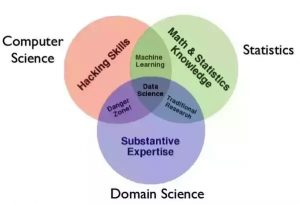Reflections: The G in HRDAG is the Real Fuel
 As a young, Colombian, aspiring statistician in my final year of college, I was struggling to find a compelling topic for my undergraduate thesis. While most of my classmates were writing their projects about mathematical statistics or market research, I was looking to use my statistical skills to contribute something meaningful to my society. I was very concerned about ongoing violence in my country, especially about vulnerable communities. I came across a method for estimating conflict-related violence— Multiple Systems Estimation (MSE)—and I thought it could be very valuable to estimate the death toll of the indigenous community. A US-based group called HRDAG was pioneering the use of this method for human rights violations.
As a young, Colombian, aspiring statistician in my final year of college, I was struggling to find a compelling topic for my undergraduate thesis. While most of my classmates were writing their projects about mathematical statistics or market research, I was looking to use my statistical skills to contribute something meaningful to my society. I was very concerned about ongoing violence in my country, especially about vulnerable communities. I came across a method for estimating conflict-related violence— Multiple Systems Estimation (MSE)—and I thought it could be very valuable to estimate the death toll of the indigenous community. A US-based group called HRDAG was pioneering the use of this method for human rights violations.
Luckily for me, Patrick Ball and a few other HRDAG folks had recently begun partnering with a Colombian human rights NGO called the Colombian Commission of Jurists (CCJ). As soon as I learned that HRDAG was working in Colombia, I managed to convince the CCJ to let me sit at a desk in their office to write my dissertation using CCJ’s data and HRDAG’s methods.
It took me a while to realize I had become part of the HRDAG incubator—at least that’s what it felt like to me—for young data analysts who wanted to use statistical knowledge to make a real impact on human rights debates.
When I joined the team I had a solid statistics education, but at HRDAG I learned a great deal about data processing principles and the value of subject matter knowledge and local knowledge. I now realize that the three pillars I mentioned are ones that HRDAG has combined for decades, and much more recently these have now taken on additional buzz under the banner of what people call “data science.”
I’m sure my HRDAG colleagues will love that I’ve included a Venn diagram.
Being at HRDAG, especially as a young professional, was a rich learning experience. I had one of most rewarding experiences in my professional life. In October 2010, I testified as an expert witness in a legal case that set a historic precedent for human rights in Guatemala. The Guatemalan Attorney General’s office summoned me to present evidence in the trial of two former Guatemalan National Police agents accused of forcibly disappearing 26-year-old student and union leader Edgar Fernando García.
At HRDAG not only did I learn about and participate on projects related to human rights promotion in contexts all over the world, I learned several programing languages (Stata, R, Bash, Python, Yaml, LaTeX) and how to integrate them into a smooth workflow. Our hacking retreats in our Bogotá apartment or in some charming house on the coast of California were remarkable — where during the course of a week our team made up of human rights experts, computer scientists, engineers and statisticians met to solve problems, exchange knowledge and have fun. And the most important, I met incredible people, including my wife, lifelong mentors and some of my best friends.
H-R-D-A-G has inspired many people to engage in “HR” & “DA” (Human Rights Data Analysis). However, for me, having a committed “G” (group) of people who genuinely value the HRDAG mission was the fuel of HRDAG those years I was an active member of the group (and I’m sure it still is). Long live HRDAG.
Image: https://www.quora.com/How-can-I-become-a-data-scientist-as-an-economics-student
